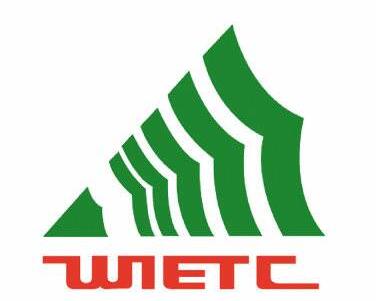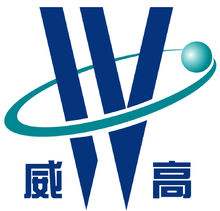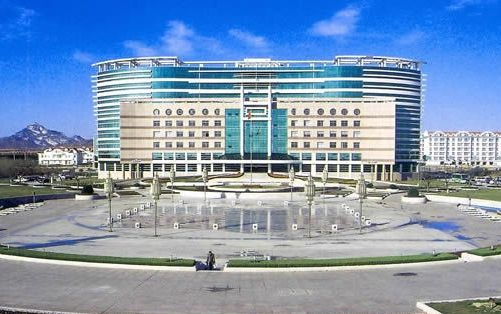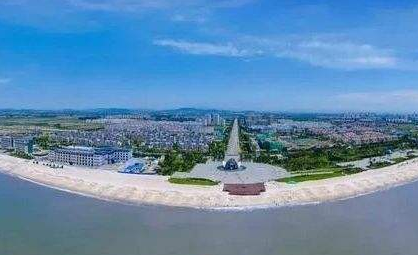翻譯新聞 News
科技(jì)翻譯例文分享---工程行(xíng)業
來(lái)源:網絡 作(zuò)者:本站 發布時(shí)間(jiān):2021年03月08日 閱讀次數(shù): 次
The Engineering Profession
Engineering is one of the oldest occupations in history. Without the skills included in the broad field of engineering, our present-day civilization never could have evolved. The first toolmakers who chipped arrows and spears from rock were the forerunners of modern mechanical engineers. The craftsmen who discovered metals in the earth and found ways to refine and use them were the ancestors of mining and metallurgical engineers. And the skilled technicians who devised irrigation systems and erected the marvellous buildings of the ancient world were the civil engineers of their time. One of the earliest names that has come down to us in history is that of Imhotep, the designer of the stepped pyramid at Sakkara in Egypt about 3000 BC.
Engineering is often defined as making practical application of theoretical sciences such as physics and mechanics. Many of the early branches of engineering were based not on science but on empirical information that depended on observation and experience rather than on theoretical knowledge. Those who devised methods for splitting the massive blacks that were needed to build Stone-henge in England or the unique pyramids of Egypt discovered the principle of the wedge by trial for the pyramids were probably raised into place by means of ramps of earth that surrounded the structures as they rose; it was a practical application of the inclined plane, even though the concept was not understood in terms that could be quantified or expressed mathematically.
Quantification has been one of the principal reasons for the explosion of scientific knowledge since the beginning of the modern age in the sixteenth and seventeenth centuries. Another important factor has been the development of the experimental method to verify theories. Quantification involves putting the data or pieces of information resulting from experimentation into exact mathematical terms. It cannot be stressed too strongly that mathematics is the language of modern engineering.
Since the nineteenth century both scientific and practical application of its results have escalated. The mechanical engineer now has the mathematical ability to calculate the mechanical advantage that results from the complex interaction of many different mechanisms. He or she has new and stronger materials to work with and enormous new sources of power. The Industrial Revolution began by putting water and steam to work;since then machines using electricity, gasoline, and other energy sources have become so widespread that they now do a very large proportion of the work of the world.
One result of the rapid expansion of scientific knowledge was an increase in the number of scientific and engineering specialities. By the end of the nineteenth century not only were mechanical, civil, and mining and metallurgical engineering established but the newer specialities of chemical and electrical engineering emerged. This expansion has continued to the present day. We now have, for example, nuclear, petroleum, aerospace, and electronic engineering. Within the field of each engineering there are subdivisions. For example, within the field of civil engineering itself, there are subdivisions;structural engineering, which deals with permanent structure; hydraulic engineering which is concerned with systems involving the flow and control of water or other fluids ; and sanitary or enviromental engineering, which involves the study of water supply, purification, and sewer systems. The major subdivision of mechanical engineering is industrial engineering which is concerned with complete mechanical systems for industry rather than individual machines.
Another result of the increase in scientific knowledge is that engineering has grown into a profession. A profession is an occupation like law, medicine, or engineering that requires specialized, advanced education; indeed, they are often called the "learned professions". Until the nineteenth century, engineers generally were craftsmen or project organizers who learned their skills through apprenticeship, on-the-job training, or trial and error. Nowadays, many engineers spend years studying at universities for advanced degree. Yet even those engineers who do not study for advanced degrees must be aware of changes m their field and those related to it.
Thus, the word engineer is used in two ways in English. One usage refers to the professional engineer who has a university degree and education in mathematics, science, and one of the engineering specialities. Engineer, however, is also used to refer to a person who operates or maintains an engine or machine. An excellent example is the railroad locomotive engineer who operates a train. Engineers in this sense are essentially technicians rather than professional engineers.
參考譯文
工程行(xíng)業
工程學是曆史上(shàng)最古老的行(xíng)業之一。要是沒有廣闊的工程學領域裏所擁有的種種技(jì)術(shù)的話(huà),那(nà)麽,決不可(kě)能有今天的文明(míng)。那(nà)些(xiē)用石塊削制(zhì)箭頭和(hé)槍矛的初期工具制(zhì)作(zuò)者,是現代機械工程師(shī)的先驅。在地球上(shàng)發現了金屬并找到了精煉和(hé)便用金屬的辦法的工匠,是采礦和(hé)冶金工程師(shī)的祖宗,而設計(jì)灌溉系統并建造古代神奇建築物的有娴熟技(jì)術(shù)的技(jì)術(shù)人(rén)員,則是當時(shí)的土木工程師(shī)。從曆史上(shàng)流傳下來(lái)的最古老的名字之一,是伊霍德普,他是在大(dà)約公元前三千年古埃及撒喀拉階梯形金宇塔的設計(jì)者。
人(rén)們常常把工程學定義為(wèi)實際應用理(lǐ)論科學(比如物理(lǐ)學和(hé)力學〉的學科。工程學初期的許多(duō)分科都不是以科學為(wèi)基礎,而是以經驗資料為(wèi)基礎的;而後者有賴于觀察結果與經驗,卻不取決于理(lǐ)論知識。那(nà)些(xiē)當時(shí)想出辦法把建造英國石柱群和(hé)世界獨有的埃及金字塔所需要的巨石破開(kāi)的人(rén),在試驗中發現了楔的原理(lǐ),因為(wèi)金字塔很(hěn)可(kě)能是在建造的過程中利用環繞在四周的斜土坡逐步堆砌上(shàng)去的;這是斜面原理(lǐ)的一個(gè)實際應用,盡管人(rén)們在當時(shí)對斜面原理(lǐ)的概念還(hái)不能從量上(shàng)去了解,也不能用數(shù)學公式去表示。
量化是自16世紀和(hé)17世紀現代化時(shí)代開(kāi)始以來(lái)造成知識爆炸的主要原因之一。另一個(gè)重要因素則是用來(lái)檢驗理(lǐ)論的實驗方法獲得(de)了發展。量化涉及到把根據實驗獲得(de)的數(shù)據或各種零星資料歸納成精确的數(shù)學表達式。因此,數(shù)學是現代工程學的語言,這樣說怎麽都不算(suàn)太過分。
自從19世紀以來(lái),數(shù)學成果在科學上(shàng)和(hé)實際問題上(shàng)的應用都有了飛速的發展。機械工程師(shī)現在有能力用數(shù)學方法來(lái)計(jì)算(suàn)許多(duō)種不同機構之間(jiān)複雜的相互作(zuò)用所産生(shēng)的機械效益。人(rén)們有新型的強度更高(gāo)的材料供自己使用,并且有龐大(dà)的新能源,工業革命從驅使水(shuǐ)和(hé)蒸汽做(zuò)工作(zuò)開(kāi)始。從此之後,用電(diàn)、用汽油和(hé)用其他能源的機器(qì)已非常普及,它們現在幹着世界上(shàng)絕大(dà)部分的工作(zuò)。
科學知識迅速擴展的一個(gè)結果,曾經是科學專業與工程專業兩者在數(shù)量上(shàng)的增長。到19世紀末,不但(dàn)産生(shēng)了機械工程、土木工程以及采礦和(hé)冶金工程,而且還(hái)出現了化學工程與電(diàn)氣工程這些(xiē)新專業。這種擴展過程一直繼續至今。例如,我們理(lǐ)在有核工程、石化工程、航空(kōng)航天工程以及電(diàn)子工程等。在每門(mén)工程領域內(nèi)還(hái)有細分的專業。例如,在土木工程自己的領域裏,就有下列這些(xiē)分科:結構工程一一研究水(shuǐ)久性結構;水(shuǐ)力工程一一涉及到水(shuǐ)或其他流體(tǐ)的流動與控制(zhì)的系統;以及環境衛生(shēng)或環保工程一一研究供水(shuǐ)系統、水(shuǐ)淨化系統與排污系統等,機械工程的主要分支是工業工程,它涉及到工業上(shàng)的全套機械系統,而不是研究單台機器(qì)。
科學知識增長的另一個(gè)結果是,工程學已發展成一種專門(mén)職業【行(xíng)業】。專門(mén)職業是指像法律、醫(yī)學或工程學那(nà)樣的要求受到專業高(gāo)等教育的行(xíng)業;事實上(shàng),它們常被稱之為(wèi)“有學問的職業[行(xíng)業]”。19世紀以前,工程師(shī)通(tōng)常還(hái)隻是些(xiē)技(jì)工或工程項目的組織者,他們通(tōng)過學徒,成崗位培訓或試湊法等學會(huì)技(jì)藝。而現在,許多(duō)工程師(shī)要花(huā)費多(duō)年時(shí)間(jiān)在大(dà)學裏為(wèi)高(gāo)等學位而研學。然而,即便那(nà)些(xiē)不是為(wèi)了高(gāo)等學位才學習的工程師(shī)們,也必須了解自己領域裏的發展變化及與自己領域有關的發展變化。
這樣,工程師(shī)這個(gè)詞在英語裏就有兩種用法。其一是指專業工程師(shī),他們受過高(gāo)等教育,具有數(shù)學,科學和(hé)某一門(mén)工程專業方面的大(dà)學學位。但(dàn)工程師(shī)還(hái)用來(lái)指操作(zuò)或維護發動機或機器(qì)的人(rén)。一個(gè)很(hěn)貼切的例子就是開(kāi)火(huǒ)車(chē)的鐵(tiě)路機車(chē)工程師(shī)。這個(gè)意義上(shàng)的工程師(shī)實質上(shàng)是技(jì)術(shù)員,而不是專業工程師(shī)。
東營翻譯公司



















